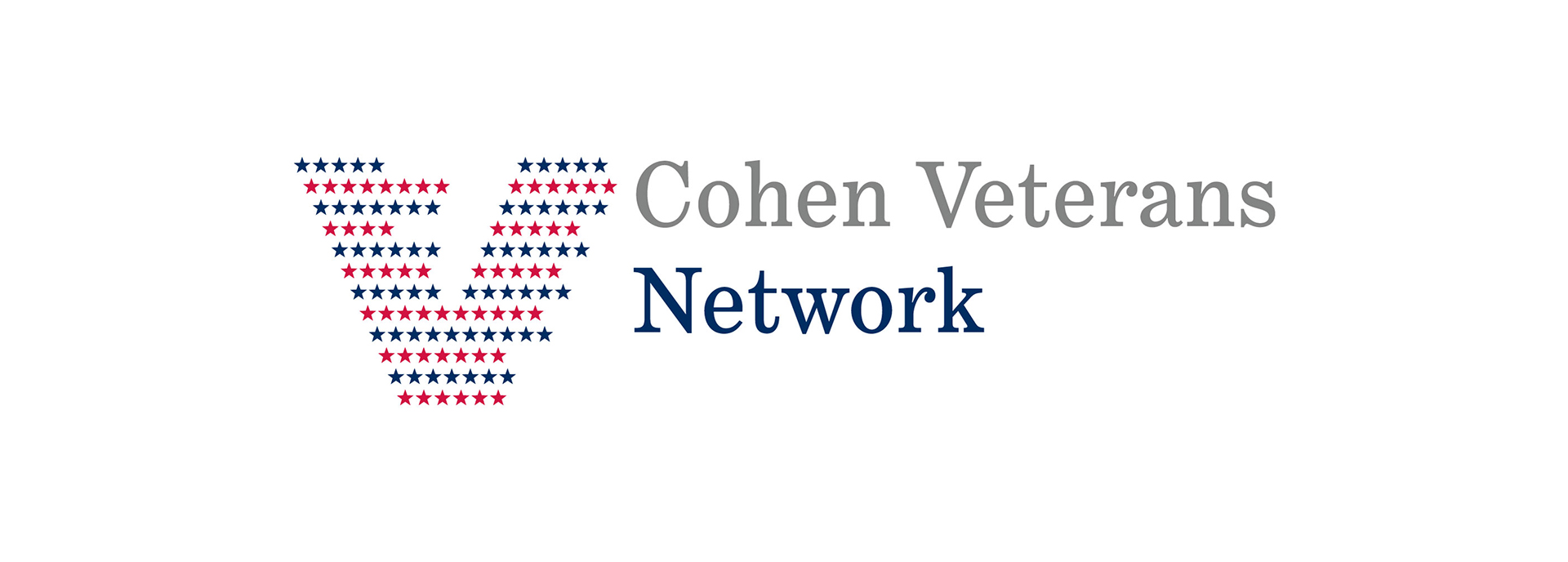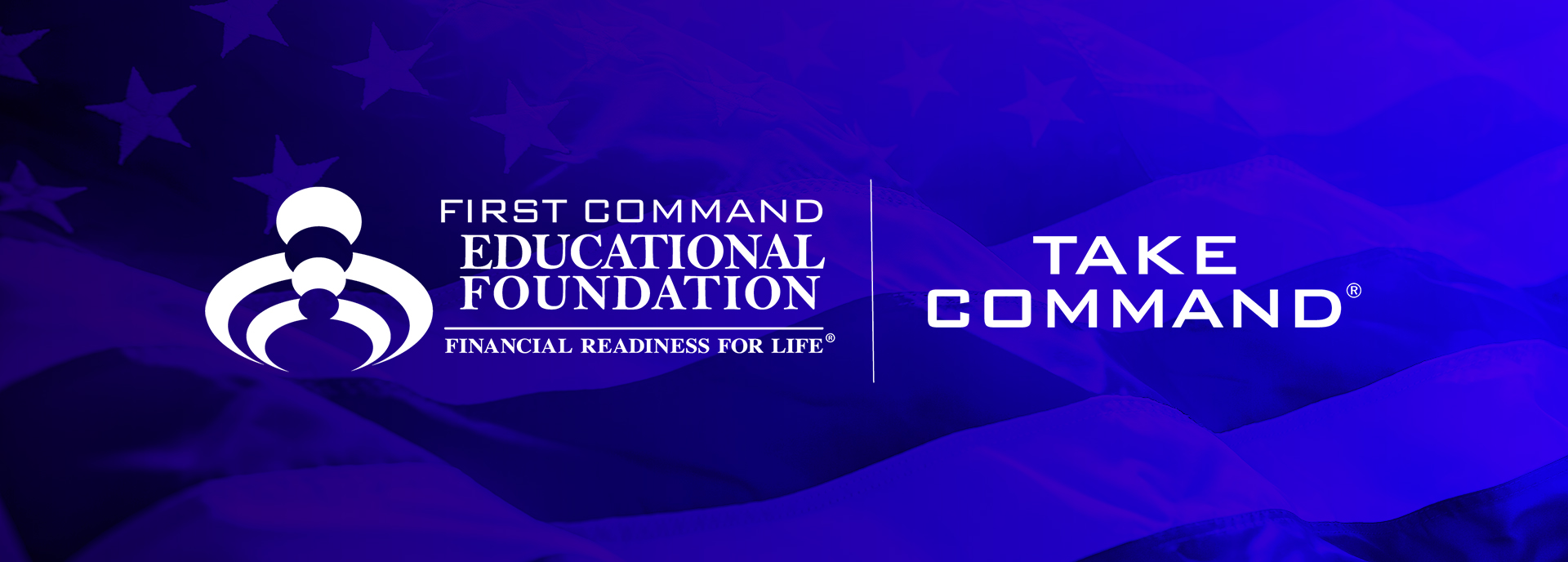Women Working in Everything

Every day, I am inspired by the women in my life. I grew up with four sisters and no brothers. My mother was my first best friend. My wife of nearly 40 years is my forever best friend. Together, we raised our two daughters with the foundation and the faith to become strong, independent women (and raised our son to respect strong, independent women). In celebration of Women’s History Month, I believe all of us—men included—can honor the women in our lives and the women in American history by supporting the positive trajectory women are taking toward a better future. Or at a minimum, by not blocking it.
Allow me to explain. Before I became the first Black president and CEO of The American College of Financial Services, I was the first Black insurance commissioner in Kentucky, the first Black president of the National Association of Insurance Commissioners, and the first Black person elected to New York Life’s executive management committee. When I see a woman shatter a glass ceiling, I see familiar challenges and opportunities reflected in the glass.
When I see a woman shatter a glass ceiling, I see familiar challenges and opportunities reflected in the glass.
Although our stories and our breakthroughs differ, I know firsthand what it’s like to be the “first.” But as my family name would imply (I’m the “third”), and as anyone who has been a first may tell you, we also have a keen awareness of those who came before us. And we hold a special sense of hope for whoever will come next. The first is never the only.
So when I see a woman on the path to becoming a first, I feel the least I can do is move over and let her enter traffic at her own best pace—fueled by her God-given talents, her personal drive, and her applied knowledge. Nothing should stop her.
Now I have to ask: Who or what is stopping women from entering the financial services profession? According to the latest US Census Bureau data, women make up just over 50% of the population; yet less than a third (31%) of financial advisors are women. The fact that the profession is so disproportionate seems like something’s blocking the onramp. This is why The American College Center for Women in Financial Services exists: to promote gender parity in the profession through education, research, and networking. The Center facilitates a community known as Women Working in WealthSM, which is also the name of the Center’s newsletter.
This is why The American College Center for Women in Financial Services exists: to promote gender parity in the profession through education, research, and networking.
As a brother, son, best friend, husband, father, and professional, I support women working in all disciplines; but—as an empathetic “first”—I have a special place in my heart for the women who are working in arenas that may be considered “male-dominated.” Women Working in [Construction, Engineering, IT, and Wealth], I see you!
And someone we all see lately is the contemporary basketball great, Caitlin Clark of Iowa. On February 15, Clark surpassed the NCAA Division I women’s record set by Kelsey Plum in 2017. On February 28, Clark became the top-scoring women’s basketball player, breaking the unofficial record held by Lynette Woodard of Kansas since 1981. Clark’s accomplishment also shined a spotlight on the lesser-known women’s basketball player Pearl Moore, whose all-time record set in 1979 is still higher than Clark’s but not included for comparison because it occurred at Francis Marion College, which is not NCAA Division I. What a wonderful phenomenon when the excellence of one player shines a light on another!
This month, on March 3, Clark set the all-time NCAA Division I scoring record, breaking the record set by men’s basketball player Pete Maravich of LSU in 1970. In that moment, Clark marked a spot in basketball history—not only women’s basketball history. Clark’s greatness as a player is a story of human potential, both for women and men. What a great example of where women are headed in all arenas!
In the final moments of the postgame press conference that followed, a reporter asked:
“You have now scored more points than anyone who has ever played [NCAA] Division I men’s or women’s basketball. As much as you say that record isn’t what you’re thinking about, when you hear it like that, is that going to hit you at some point?”
Clark’s answer:
“Oh, for sure. It's really crazy to think about. Honestly, if you would have told me that before my college career started, I would have laughed in your face and been like, ‘No, you're insane.’
I've always been able to score the ball, but I don’t think people really understand how many amazing players have come before me and been able to score the ball and do it at such a high rate and do it for teams that are really, really good.
And just to be in the same realm of all these players that have been so successful, whether it's Pete [Maravich] or whether it's Kelsey Plum or Lynette Woodard—all these people have just given so much to the game.
Hopefully somebody comes after me and breaks my records and I can be there supporting them. And that's what makes the game of basketball so fun.
But yeah, it'll definitely hit me at some point. Thanks.”
I can’t think of a better way to close out this blog—or this Women’s History Month in March of 2024—than to reiterate Clark’s hope for the future: “Hopefully somebody comes after me and breaks my records and I can be there supporting them.”
Whether you are breaking glass ceilings or breaking records (assets under management, revenue, or hours of CE!); whether you are playing in one division or another (wealth management, retirement, life insurance, tax planning); whether you are new to the game or at the top of your game—The College and I support you on your path to make history.
Diversity, Equity & Inclusion Insights
Scholar Appreciation

This message has been included with the scholar’s approval. A Center for Military and Veterans Affairs Alumna Heather Caral, military spouse of U.S. Navy Active Duty, expresses her gratitude to the Center for Military and Veterans Affairs upon completion of the ChFC® program:
I wanted to take a moment to express my heartfelt gratitude for the Center’s guidance and unwavering support throughout the two years of the ChFC® program at The American College of Financial Services. I truly appreciate the impact it has had on both my professional and personal growth.
The scholarship backed by donors from the program made me feel like I had a community cheering me on every step of the way.
The accomplishment I've achieved means a great deal to me, and I am optimistic about the opportunities that the future holds. Thank you for believing in me.
2024 Center for Military and Veterans Affairs Initiatives

2024 Center for Military and Veterans Affairs Initiatives
With a successful 2023 behind them, the Center for Military and Veterans Affairs is looking forward to advancing its strategic priorities and initiatives in 2024.
First, the Center will be focused on engaging more individual donors and corporate and foundation partners to advance its mission of providing scholarships to active duty, guard, reserve members, veterans, and their spouses.
The Center will continue to award scholarships for the Wealth Management Certification Program® (WMCP®) focused on transitioning personnel to the civilian sector or into financial services and its cohort program to aid in its scholars’ success.
The Center will work to host future Military Resource Group (MRG) webinars and provide educational and professional development opportunities for its scholars and MRG members at both events for the Center and The American College of Financial Services. In 2023, the Center developed a Military Consumer Financial Education Program through partnerships with military financial educational foundations and this year will work to increase participating companies.
FinServe Ambassador Champions the Power of Independent Advisors

Along with his wife (Kennah) and two other partners (Warren and Jennifer), Parham runs Innovative Wealth Building (IWB), an RIA firm headquartered in California, MD, but with a reach that spreads across the country. It’s a successful business that operates alongside many of the giants in the financial services industry – a fact that always pushes RIAs to continually seek new ways to grow and scale. The journey between these two worlds is one that Parham himself has navigated.
“When I went to college, I had no idea what I wanted to be when I grew up,” he says. “I was lucky enough to land an internship at Northwestern Mutual when I was 20 and as those summer days just flew by, I realized this was what I wanted to do for the rest of my life.”
After his experience with a large national firm like Northwestern, Parham’s professional career started out a bit smaller as a financial advisor for First Command, a boutique firm mostly serving the military community. He was eventually promoted to district manager and associate director of training, helping to welcome many other new advisors to the field, before deciding to take a leap over to Prudential, one of the largest firms in the industry.
“Working at Prudential really opened my eyes to what was out there,” he says. “At my previous company, I hadn’t gotten much of a chance to experience life outside of the fishbowl. During my time at Prudential, I learned a lot more about the industry and the vastness of the opportunities that I wasn’t even aware of. I also began engaging in more complex planning with high-net-worth clients, something I’d never gotten to do before, and I wanted more of that.”
Independence in Practice
Once his contract with Prudential was up, Parham decided to make another leap: from the corporate world to the field of independent advising. This was the genesis of IWB.
“After almost 10 years in the industry, I knew what I liked and what I didn’t like, and I knew that I could use those ideas combined with my strengths to build a financial planning utopia for my clients,” he says.
“When you’re independent, you can do what you think and know is best for your clients. Instead of having to keep your opinions to yourself and toe the company line, you’re free to chart your own path.”
The transition to independence, as Parham describes it, broke down into three core promises to the clients he worked with: better investment services, better technology, and lower fees. The first two sprung from his newfound freedom as an independent advisor to make the decisions he felt were right for himself and those he served, and the last was made possible by the lack of overhead that larger companies have to factor into their service models. While the process of building the new firm was a multi-year endeavor, he says he noticed the difference right away – as did many of his clients.
“The first sign that we were moving in a good direction was that by the time we had finished transitioning all our clients over to IWB, many of them were already recommending us to other people,” he says. “When we first started, we didn’t even have a website. Now, we get requests through it for new client introductions multiple times a week.”
However, Parham also isn’t shy about the challenges that independence brings – including a massive amount of decision-making that can sometimes be overwhelming.
“When you’re independent, you don’t have a parent company to fall back on. If things aren’t excellent, nobody’s on the hook for that but you,” he says. “It’s a big world with a lot of choices, and if you’re not careful, you can fall victim to decision fatigue. It’s like birthday shopping for a significant other: there are so many options out there, but how do you decide on the best one?”
The Armor of Knowledge
In the midst of all these choices, however, Parham says one thing has helped keep him on course: the education he received from The American College of Financial Services.
“Being an RIA instead of working for a broker-dealer is like swimming in the ocean as opposed to a pool. It can be lonely, and there may even be sharks in the water. Working with The College has shown me there are lots of people out there just like me, and has allowed me to collaborate with others in ways that have proved to be mutually beneficial for all parties.”
Parham says that he was initially self-taught when joining the industry, but began his learning journey with The College through its CFP® Certification Education Program to earn the coveted industry-standard mark. From there, he took advantage of The College’s interconnected programming to branch out to the Chartered Life Underwriter® (CLU®), Chartered Financial Consultant® (ChFC®) and Wealth Management Certified Professional® (WMCP®) designations.
“The College’s education has been like body armor for me,” he says. “The WMCP® especially gave me the knowledge and confidence to work with more up-market clients and higher-net-worth individuals I’d never spoken with before, and I’ll absolutely be a lifelong learner.”
One of Parham’s more recent acquisitions is the Retirement Income Certified Professional® (RICP®) designation, which he says has helped him focus on the critical needs of clients at or nearing retirement, including Society Security claiming, long-term care and longevity risk, asset management, and wealth transfer. However, it’s also given the tools to approach another pool of clients as well–those who may be young, but are already looking to set themselves up for the future.
“A portion of my clients are from the West Coast and the Los Angeles area–people in their 20s and 30s who may be high earners but not rich yet–and many of them don’t know that small steps today can reap big benefits for tomorrow,” he says. “Almost everyone wants to retire, and even people who don’t think they’ll be able to will usually jump at the chance if you show them it’s possible and what to do about it. The difference between having a $900,000 nest egg and having maybe more than $3 million in the bank can sometimes be as simple as a few small adjustments–and that’s the knowledge the RICP® has given me.”
Maintaining RIA Excellence in a Changing World
Building and running an independent practice is a lot of hard work, Parham admits–but when asked if he ever second-guesses his decision, his answer is a definitive no.
“Going RIA has led to an almost unbelievable improvement in my career and in my life,” he says. “If you do it right and prepare for it properly, you’re going to wonder how you lived without it. People ask me if the grass is greener on this side of the fence, and I sometimes tell them that if you go RIA, you might realize you didn’t even have any grass on the other side to begin with.”
Parham compares the business of running an independent practice with the idea of owning a home as opposed to renting one: when renting, you might not have to be as focused on all the things to do, but owning comes with a greater sense of pride along with the responsibility. He does acknowledge, though, that further change and evolution is needed both in the profession and in society.
“The RIA space is probably less diverse than the broker-dealer world, and our industry as a whole isn’t as diverse as many others,” he says. “When you look at the wealth distribution in America and the types of people who generally hold the wealth, you get a sense of why that might be, but it’s not just that; many aspects of the industry just aren’t meant to cater to certain populations who may want to get into it.”
Parham cites paid family leave as one such policy, as many companies in the financial services industry still may not offer it to their employees–especially working mothers.
“We’ve made some progress, but overall financial advising as a profession isn’t set up to accommodate many people’s lives and circumstances. As a result, the financial services industry tends to have a very high rate of attrition. We need to rewrite the rules, and that’s where the RIA space comes in. Here, I can be more flexible and do things that I believe are the best practices to attract and retain diverse talent. I can really be a part of the change.”
Diversity, Equity & Inclusion Insights
Cohen Veterans Network

Cohen Veterans Network (CVN) was founded by philanthropist Steven A. Cohen, who made a $275M commitment to launch a network of mental health clinics in April of 2016 to serve veterans and families. CVN’s focus today is on post-9/11 veterans, active duty, and families. These areas of focus represent a concerted effort to get ahead of transitional challenges before they become chronic or acute. Each Cohen Clinic assesses veterans based on their specific needs and makes every effort to see pre-9/11 veterans based on clinician availability.
Cohen Veterans Network is a national network of mental health clinics that serves post-9/11 veterans, active duty service members (with a TRICARE referral) including National Guard and Reserves, and military family members. There is no cost for care for those without insurance and the ability to pay will never be a barrier to care at CVN clinics.1
Disclaimer: The information provided in this article is intended for general informational purposes only. It should not be considered as financial, legal, investment or other professional advice. Readers should consult with the relevant professionals for specific advice related to their situation.
We are not affiliated, associated, authorized, endorsed by, compensated or in any way officially connected with any other company, agency, or government agency in this article. All product, service and company names are trademarks™ or registered® trademarks of their respective holders. Use of them does not imply any affiliation with or endorsement by them.
Before making any decisions based on the information contained in this article, you are strongly advised to refer to alternative, independent sources of information to substantiate the basis for your decision. It is your sole responsibility to satisfy yourself prior to using the information in any way and to seek appropriate advice before taking or refraining from taking any action in reliance on any information contained in this article.
Diversity, Equity & Inclusion Insights
Partnership with First Command Educational Foundation

The American College of Financial Services is proud to partner with First Command Educational Foundation on the TAKE COMMAND Financial Education Program!
- Online interactive financial education program for active duty, guard, reserves, veterans, and their spouses
- Developed, delivered, and driven by two nonprofit entities dedicated to improving financial readiness and economic situations of those who serve
- Credit transferable to other College courses and programs
Diversity, Equity & Inclusion Insights
The Future of Finance: Generation Z

This opportunity is made possible by the generosity of exemplary donor Mary Wright. The research fellowship is not just a position, but a commitment to help shape the future of financial services for those now at the forefront of defining it. With Wright’s standing support, we have the opportunity to delve deep into the world of Gen Z, exploring the perceptions, aspirations, and nuances of our next generation of financial professionals.
According to a report published by Deloitte in May 2023, 65% of financial services institutions reported they expect a shortage of critical workers over the next two years, and only 61% believe their organization is effective in aligning the right talent with the work required.”
As the financial services industry faces significant talent shortages and an aging workforce, ample opportunity arises to attract and align Gen Z talent to fill this gap. In response to this challenge, our research aims to set forth actionable strategies the industry can implement to attract but retain Gen Z talent. So far, through an initial pilot study, extensive literature reviews, personal insights, and discussions with fellow researchers, we have designed a comprehensive survey to be launched this spring. The survey explores a wide scope of topics, from financial literacy to industry perceptions and career intentions. Through a thorough analysis of the respondents, we can gather invaluable insights from Generation Z.
Diverse, dynamic, socially engaged and self-advocating, Gen Z brings a fresh new perspective to the table, and they deserve to not only be heard, but also understood. They're not just looking for jobs; they’re seeking opportunities to make meaningful impact both within and outside of the workplace. As we navigate the challenges and opportunities presented by the evolving landscape of financial services, let us embrace the insights and aspirations of Generation Z in driving the financial sector towards a more prosperous, diverse, and sustainable future.
Diversity, Equity & Inclusion Insights
Women Working in Wealth on the Road

At these prestigious events, the Center for Women in Financial Services showcased its expertise and dedication to empowering women in the financial industry. Lewis’s presence underscored The College's commitment to advancing gender equality and fostering leadership among female professionals. Here are some of the Center’s favorite takeaways.
Five Key Themes from the Invest In Women Conference and Osaic W Forum
- Empowering Female Clients: The conferences emphasized the importance of empowering financial advisors to effectively address the unique needs of female clients. With a focus on inclusivity and diversity, attendees gained valuable insights into tailoring financial strategies to meet the evolving preferences of women in the rapidly changing financial services landscape.
- Insights Into Longevity Planning: A standout session shed light on the implications of female clients' longevity on Social Security and Medicare planning. Advisors learned valuable strategies to ensure the financial security of their clients in later years, equipping them to navigate the complexities of retirement planning with confidence.
- Supporting Clients Through Major Illnesses: Another session addressed the sensitive topic of assisting clients in surviving major illnesses. Attendees gained practical tools and resources to support clients during challenging times, fostering stronger client-advisor relationships built on trust and empathy.
- Navigating Divorce and Transitions: The conference tackled the harsh reality that marriages often end in divorce, offering insights into the financial implications of divorce and strategies for navigating this complex transition. Advisors learned how to effectively guide clients through divorce proceedings while safeguarding their financial wellbeing.
- Visionary Approaches to Scaling Firms: Attendees explored three visionary approaches to scaling their advisory firms, gaining inspiration and practical knowledge to achieve their professional goals. From leveraging technology to expanding service offerings, advisors left with actionable strategies to drive growth and innovation in their practices.
In summary, both the Invest In Women and Osaic W Forum conferences serve as catalysts for change, ushering in a new era of excellence for financial advisors, industry leaders, and their valued clientele. By empowering advisors to better serve female clients and fostering a culture of inclusivity and innovation, the event set the stage for a more impactful and inclusive approach to wealth management in the years to come.
Diversity, Equity & Inclusion Insights
Empowering the Next Generation: Women Alumni Leading The College’s Next Gen Advisory Task Force

The American College of Financial Services’ Next Gen Advisory Task Force stands as a beacon of innovation and forward thinking within the financial services industry. Comprising a diverse group of talented alumni and active students, this task force is dedicated to providing fresh perspectives and driving positive change within the profession. At its helm are a cohort of remarkable women alumni, whose leadership and dedication are shaping the future of the industry.
Purpose of the Next Gen Advisory Task Force
The Next Gen Advisory Task Force serves a crucial role in advancing the mission and vision of The College. Through initiatives like the Next Gen Award, The College’s podcasts, and industry events, the task force aims to provide a platform for the rising generation of professionals to thrive. By fostering transparency in career paths, conducting research, and promoting inclusion and belonging, the task force is attracting and retaining top talent.
Guiding Principles
The Next Gen Advisory Task Force is guided by a clear mission and vision, driving its efforts to enhance financial services through innovative ideas and diversity of thought. Its mission is to attract more next gen professionals to the industry, provide opportunities for learning and growth, and create environments that foster talent retention. With a vision focused on enhancing diversity and innovation, the task force is committed to driving positive change within the profession.
Women Alumni Leading the Way
Among the alumni serving on the task force are a group of talented and dedicated women, each bringing their unique expertise and perspectives to the table.
- Amber Stitt ACP, CHFC®, CLU®, GALLUP®
- Hannah Kanstroom, CAP®
- Katlyn Orton, RICP®
- Kay Blunck, CFP®, CHFC®, CAP®, CRPC®, AEP®
- LeTian Dong, CFP®, WMCP®, RICP®, CHFC®, RMA®
- Lindsey Lewis, MBA, CHFC®, CFP®
- Morgan Marlin, CRPS®, WMCP®
- Stephanie Hohenshell, RICP®, LACP®, LUTCF®
Join our standout women alumnae serving on the task force!
Supporting Women Champions
In addition to the alumni serving on the task force, The College is fortunate to have the support of women who champion its mission and values.
- Anna Kareis, APMA
- Alanah Phillips
- Chandress Williams, CPWA®
- Crystal Roseman
- Diana Cabrices
- Gloria S. Garcia Cisneros, CFP®
- Jackie Wilke
- Jessica Flynn
- Julie Ragatz, PhD
- Kristin Dorm
- Lea Landaverde
- Liv Gagnon
- Mariana Llamas
- Mariel Walker
- Nabia Jenkins-Johnston
- Nicole Casperson
- Paxon Stofcheck
These women are dedicated to supporting The College's initiatives and driving positive change within the profession.
Together, the women alumni and supporters are leading the charge towards a more inclusive, innovative, and vibrant future for the financial services industry. Their dedication, leadership, and commitment to excellence will inspire the next generation of professionals and shaping the future of the profession for years to come.
Unveiling Results from the Retirement Income Literacy Study

The study, which is the fourth iteration of The College's Retirement Income Literacy Study, reveals concerning gaps in retirement knowledge among older Americans. On average, participants scored only 31% on a retirement literacy quiz, highlighting a lack of actionable retirement knowledge.
Dr. Kaylee Ranck, Director of College Research, led the efforts to launch this project on behalf of the American College Center for Women in Financial Services and presented the findings at the event. The study underscores the direct relationship between financial literacy and factors such as asset levels. Respondents with assets exceeding $1.5 million scored twice as high as those with less than $100,000 (50% vs. 25%), indicating that wealthier individuals tend to have a better understanding of retirement planning.
The study also emphasizes the crucial role of financial professionals in educating clients. Advised respondents, those who work with financial advisors, demonstrated higher retirement income literacy and better outcomes compared to their non-advised peers. This finding highlights the importance of professional guidance in navigating the complexities of retirement planning.
The timing of the study is particularly relevant as the United States approaches a demographic shift known as the "Graying of America." The Baby Boomer generation is reaching retirement age, with an estimated 12,000 individuals retiring every day. As the median age of Americans increases, planning for longer, well-lived lives become increasingly important.
The media event in New York City, attended by journalists from leading trade publications and industry experts, served as a platform to disseminate these findings. The Retirement Income Literacy Study not only sheds light on the current state of retirement literacy, but also points to the need for a concerted effort to improve financial education and planning.
In addition to the broader findings, the Center for Women in Financial Services is set to launch a specialized segment of the data focusing on retirement income planning for women. This initiative aims to highlight the distinct outcomes and knowledge levels of women regarding retirement income. The continued examination of the survey results, including this targeted analysis, is essential in providing valuable insights into the state of retirement planning and financial literacy in the United States. As the research progresses, it will remain instrumental in shaping the conversation around retirement readiness and financial education, with a particular emphasis on addressing the needs of diverse demographics.